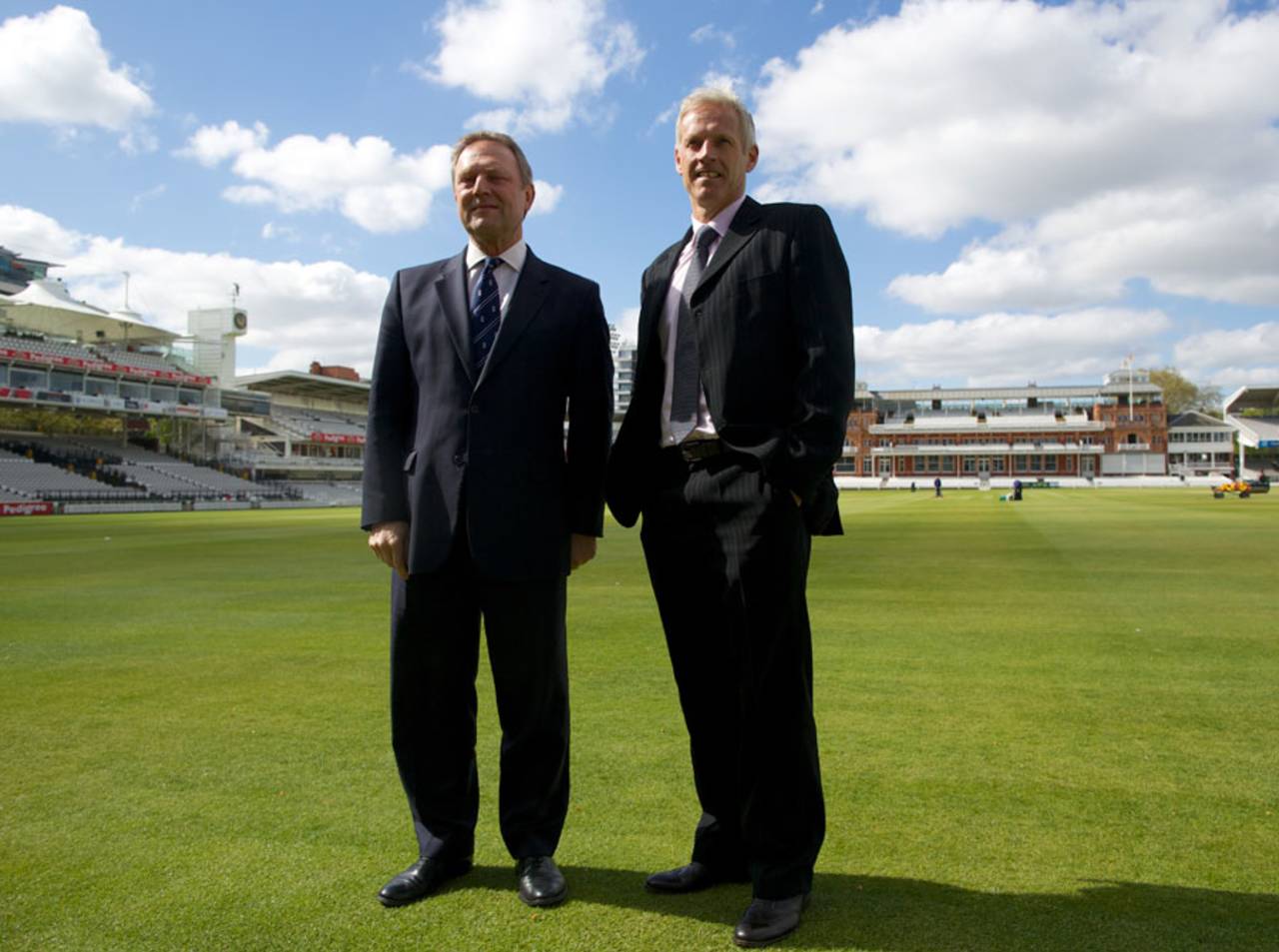Moores and the shadow of the past
His second spell as England coach might be nothing like his first, but memories of it will hover nevertheless
Jon Hotten
24-Apr-2014

Downton and Moores: the wicketkeepers dunnit • Getty Images
The true conspiracy theorist will point out that the new England set-up is not the revenge of the establishment but of the wicketkeepers: Paul Downton, Andy Flower, Peter Moores and Paul Farbrace all spent their playing careers as members of the Secret Society Of Sticksmen.
Conspiracy theorists can see conspiracy everywhere. That's sort of the point. The return of Peter Moores has been something of a lightning rod for speculation - Is he being rewarded for keeping his mouth shut last time? Is he the one candidate certain not to ask for the reinstatement of KP? And yet his time in charge is just as likely to be shaped by the forces of story and narrative.
This week, another sport provided an example of its power in the connected world. The news that David Moyes was to be sacked as the manager of Manchester United was broken online in the early afternoon of Easter Monday by a group of journalists apparently briefed en masse by someone close to the club's decision-makers. Two hours later, the story had such reach and forward momentum that the dismissal had been accepted as fact. Had United wanted to keep Moyes, they may not have been able to - things had travelled too far and too fast for it to be plausible.
It was a story that had been waiting to happen, prefigured by United's history. When their last great manager before Ferguson, Sir Matt Busby, retired, his successor had been quickly removed, an event referenced constantly by the media from the moment that Moyes was appointed. There was an element of self-fulfilling prophecy about it all.
Peter Moores begins his job in a similar situation. The past hovers uneasily over him too, in this case the long-held narrative that you should never go back. He was cast in a particular role during his first term as England's coach, that of the brilliant county man out of his depth in the international game. His approach, launched at his players with an all-embracing enthusiasm, did not always sit well with the established stars of the game. Michael Vaughan felt that he and Moores had clashing personalities, and Kevin Pietersen famously advocated his dismissal. In all, he lasted 20 months, his teams having won eight of 22 Tests, all but one of those against New Zealand or West Indies. He gave a rather woolly performance in his first press conference back in the job.
None of this need have any bearing on the new England team he will build with Alastair Cook, who is a fan of his methods, and who Vaughan feels will work well with Moores. Yet the narrative from his first spell will bear down upon Moores during difficult times. He will feel it hovering above, waiting to be spoken, waiting to be written. The sense of history repeating may be difficult to stop should it gain any purchase in the early part of his return.
The story has a lingual element to it. Andy Flower understood that, and tried to move the public description of his job away from Head Coach and towards Team Director. This is a subtle but sensible choice: it says to his players that they do not need coaching but a different form of management, based on strategy and planning. It also offers a certain professional distance from the men that he manages. One of the criticisms of David Moyes at United was that he coached the players himself, whereas Alex Ferguson left that to others and watched on through the glass of his office, moving downstairs only when things weren't to his liking. Moyes demystified himself by being ever-present, a trap that Moores fell into first time around. Flower and Duncan Fletcher understood the power and control that distance can offer.
Moores now takes charge of a different team (or "group" as he is sure to have it). They will be younger and more open to him, and Cook's support will give him strength. He needs a willing media and wider public, though, and it's here that an old story is waiting to tell itself once more.